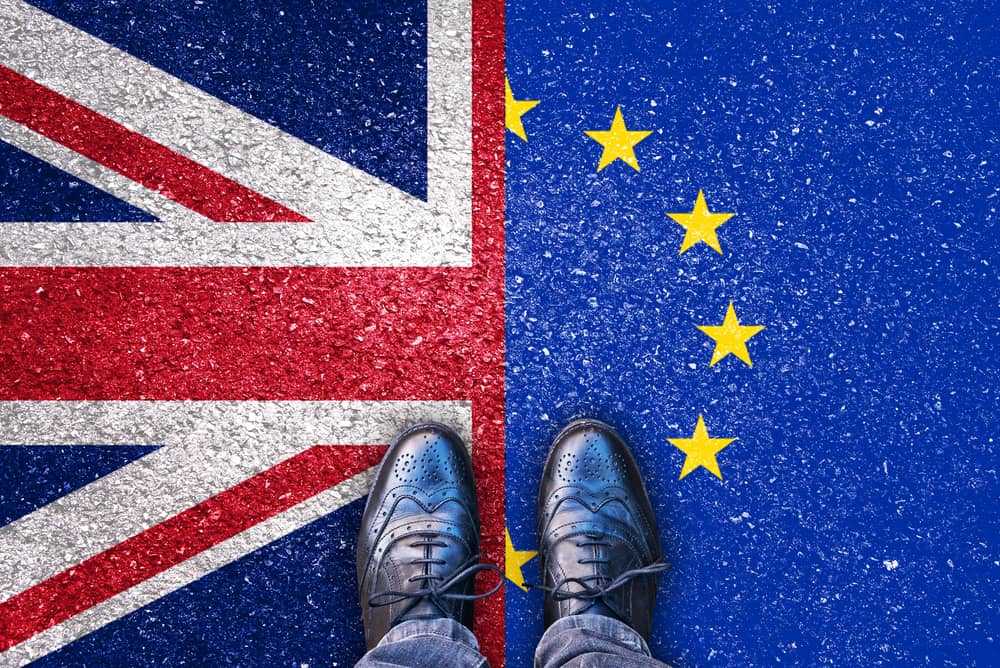Brexit: The Implications for British Expats in Malta
by Maria Gatt

The (by now) infamous 31st January has been looming on the European horizon for a few months and it's safe to say that keeping up with the latest developments has been a bit of a challenge. There are circa 1.3 million British nationals that live across the EU27 states with the situation creating to varying extents, unpredictability and uncertainty. The implications vary from member state to member state and the recent shifting of timeframes and deadlines is certainly not helping.
We're summing up the main points to keep in mind if you are a British expat living in Malta.
What's the Deal with Brexit?
It can be said that the catalyst for Brexit was a referendum held in June 2016 and in which the British electorate was asked to decide whether the UK should retain its membership status or leave the union.
A total of 51.9% of those who cast their vote chose to leave the EU and the rest, as they say, is history.
The Current Situation
If the Brexit process can be summed up in one word; that word would probably be uncertainty. After all, it's the first time that an EU member state has asked for its membership to be withdrawn. The ongoing process between the UK and the EU has been characterised by constant toing and froing, apart from the eventful domestic dynamics in the British Isles.
The 31st October 2019 had been touted as the UK's departure date from the Union, however, this was then extended to the end of January 2020. As things stand at the time of writing, the Withdrawal Agreement Bill has already completed its passage through both the House of Commons and the House of Lords. The bill provides guidelines for the various legislative areas that will be affected by Brexit and precedes an 11-month transitory period within which the new relationship will be ironed out in the best way possible.
Brexit in Malta
The latest Brexit news may not be providing sufficiently clear indications as to when the UK will be leaving the EU or on which terms it will be doing it. Member states have the autonomy to decide their own residence procedures and deadlines which have created mixed outcomes for Britons residing within the EU's parameters.
However, extensive reassurances have been provided by the Maltese government to British citizens living locally and concerted efforts are being made to ensure that Malta is "the most UK-friendly country in the EU".
The Maltese legislative framework is being updated to ensure that it reflects this new dynamic and action plans are being coordinated across different ministries. Moreover, an information campaign has been launched by the Maltese government and individuals with questions on the subject are invited to call the Brexit helpline on the number 153 or send an email to [email protected].
The Points to Keep in Mind
It is estimated that there are approximately 13,000 British expats living in Malta, out of which 5,000 are in employment while the large majority is retired. Even though the implications will doubtlessly vary from individual to individual, family to family, and business to business; there are some fundamental areas that are universally important. We're highlighting them below:
Residence
Residency is probably the most crucial point of concern for British nationals living in Malta since unrestricted movement of persons in the EU is intrinsically linked to membership. Following the UK's departure from the EU, British citizens will effectively become third country nationals and therefore their permanence in Malta will be regulated by a different status.
In this regard, the Maltese government has established a special residence framework through which British nationals who were residing in Malta prior to the 29th March 2019 will be eligible to live in Malta for a 10 year period without the need to apply for an employment license. British nationals who would like to reside in Malta following this day will also be able to avail themselves from residence documents valid for 10 years, subject to the satisfaction of established criteria.
Identity Malta is the entity that is facilitating this process and ensuring that the transition is as smooth as possible.
Healthcare
The Health Care Convention which provides reciprocal medical care for Maltese and British nationals in the two countries shall remain in place and no changes are foreseen within this context.
Education
British students who had been studying in Malta prior to the 29th March 2019 shall not experience any changes to their tuition fees. The Ministry of Education is in charge of entering into reciprocal agreements with England, Northern Ireland, Scotland and Wales for the purposes of educational fees. Prior to the finalisation of these agreements, the same fees that are applicable to third country nationals whose country does not have a reciprocal with Malta, will apply.
Recognition of Professional Qualifications
New applications for the recognition of professional qualifications shall now be processed like other third country applications.
Driving Licenses
British citizens that are currently driving in Malta with a British driving license will be required to obtain a Maltese driving license. A period of one year shall be available for this transition.
Social Security
Assurances have been made by the British government that the pensions of British retirees living in Europe will be safeguarded.
Customs and Travel
UK passport holders will be subject to third country national checks prior to entering the Maltese territory through the airport and seaport.
The EU passport for UK pets will no longer be valid and procedures are likely to be introduced.
Border control and customs checks on products will also be applicable post-Brexit.
Direct Taxation
UK citizens will no longer be eligible for the tax status applicable within the context of the High Net Worth Individuals and Residency Programme but will be able to avail themselves of other options that are available for third country nationals.
The possibility to pay tax annually at 15% with a minimum amount, will still be available.
VAT
The procedure of mutual assistance between the Maltese and British Tax Authorities will no longer be in place. As a result, individuals established in the EU may be subject to more complex due diligence checks when applying to register for VAT in Malta.
On a separate note, British tourists travelling to Malta will be eligible for the reimbursement of VAT incurred on items bought in Malta and which are carried back to the UK with them.
Gaming
It is estimated that more than 80 gaming operators in the Maltese Islands provide services in the UK. Added restrictions may be in place in the post-Brexit landscape which could create operational challenges to these operators.
Despite the cloud of uncertainty that is shrouding the Brexit process at an international level, there is extensive assistance available to British nationals residing locally and every effort is being made to ensure that the transition is as smooth as possible.
Are you a British business owner operating in Malta? There are various business consultants that can help you!
Keep on discovering local with Yellow!



